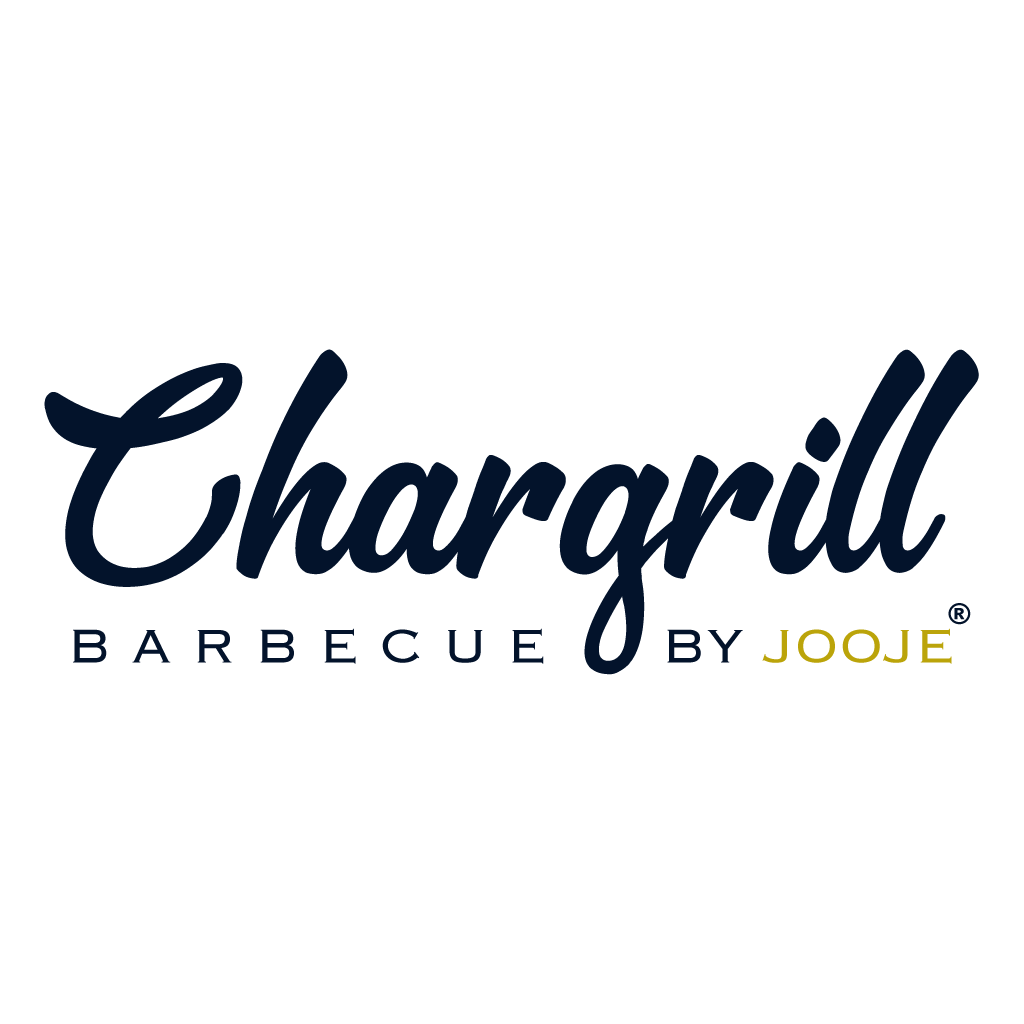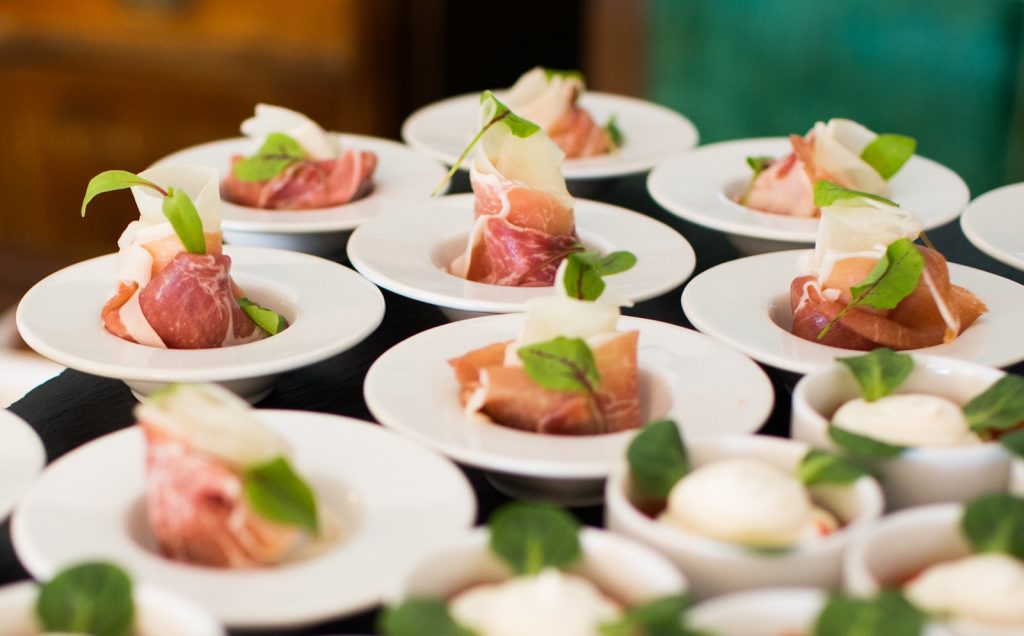Deciding between DIY vs. professional party catering? Explore the pros and cons of each option to make the best choice for your event. Learn the differences between DIY catering and professional catering for your party. Deciding between DIY and professional catering is a significant choice that impacts the quality, cost, and overall experience of your eventWhen planning a party, a key decision is whether to opt for DIY catering or hire professional party catering services. This choice significantly impacts your budget, stress levels, and the overall success of your event.
In this comprehensive guide, we will delve into the pros and cons of both DIY and professional party catering, helping you make an informed decision that best suits your event’s needs.. This article provides an in-depth comparison of DIY vs. professional party catering, examining various factors to help you make an informed decision.
Cost Comparison
The cost of catering can significantly influence your decision. DIY party catering might seem like a cheaper option at first glance, but there are numerous hidden costs to consider. Professional catering services come with a price tag, but they also offer value-added benefits that might offset the cost.
Cost Breakdown
| Factor | DIY Catering | Professional Catering |
|---|---|---|
| Ingredients | Can vary; usually lower cost | Included in the package |
| Equipment Rental | Often necessary; additional cost | Included or optional |
| Staff (Servers, Chefs) | DIY; can hire separately | Included in most packages |
| Transportation | Personal vehicle; fuel cost | Included |
| Cleanup | Self-done or hired separately | Included |
| Hidden Costs | Time, stress, potential mistakes | Minimal; handled by professionals |
Key Points
- Ingredient Costs: DIY allows for budget control but requires purchasing in bulk, which can be expensive and lead to waste.
- Equipment Rental: Necessary for larger parties, adding to the overall cost. Professional caterers include equipment.
- Staffing: Hiring staff for DIY catering can be costly. Professional services include trained staff.
- Transportation and Cleanup: These can be significant for DIY, while professionals handle these aspects seamlessly.
- Hidden Costs: DIY often involves a higher stress level and time investment, which can be underestimated.
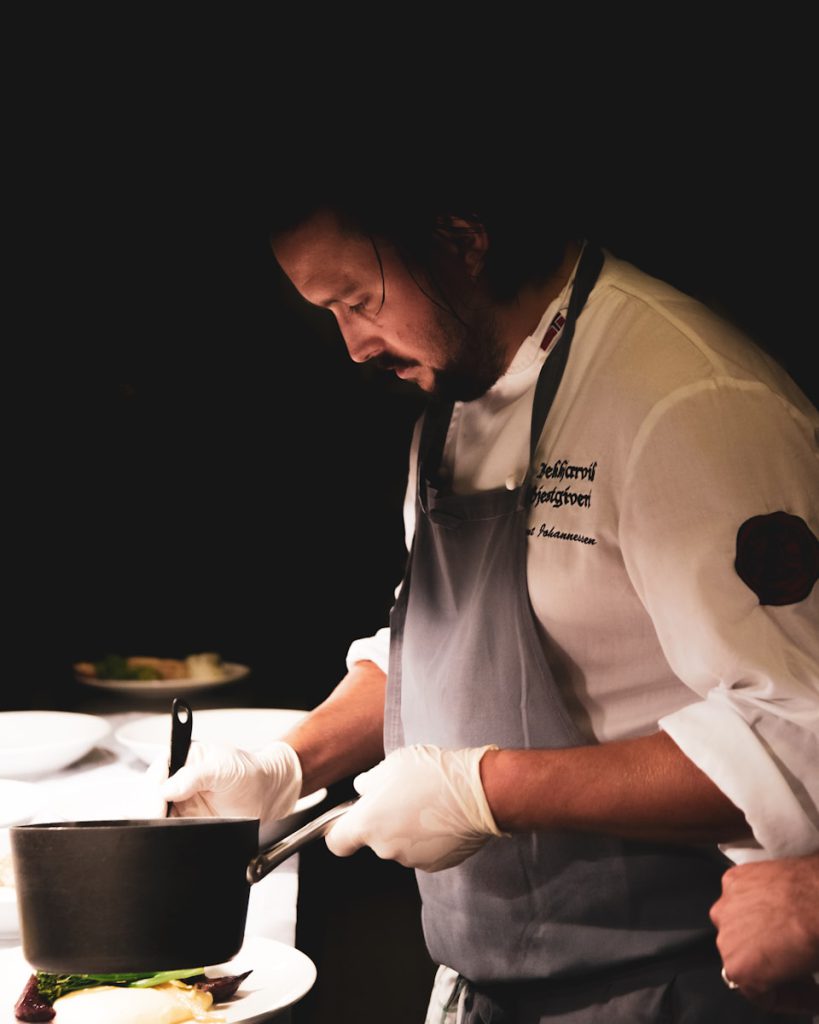
Quality and Presentation
The quality and presentation of the food are crucial to the success of any party. While DIY catering allows for personal touch and creativity, professional caterers bring expertise and consistency to the table.
Quality and Presentation Comparison
| Factor | DIY Catering | Professional Catering |
|---|---|---|
| Food Quality | Variable; depends on cooking skills | Consistent; professional standards |
| Menu Variety | Limited by individual capabilities | Extensive; customized menus |
| Presentation | Basic; dependent on personal effort | Elegant and professional |
| Special Dietary Needs | Requires research and careful planning | Easily accommodated |
| Food Safety and Hygiene | Variable; personal responsibility | High standards; trained staff |
Key Points
- Food Quality: DIY quality varies based on individual cooking skills. Professionals ensure consistent high quality.
- Menu Variety: DIY is limited by personal recipes. Professionals offer a wide variety of customizable options.
- Presentation: Professional caterers provide an elegant presentation that enhances the dining experience.
- Dietary Needs: Catering to special dietary requirements is easier with professional services.
- Food Safety: Professional caterers adhere to strict hygiene and safety standards, reducing risks.
Convenience and Time Management
Time management is crucial when planning a party. DIY catering demands a significant time investment, from planning to execution, whereas professional catering services offer convenience and peace of mind.
Convenience and Time Management Comparison
| Factor | DIY Catering | Professional Catering |
|---|---|---|
| Planning | Time-consuming; requires detailed planning | Efficient; handled by professionals |
| Shopping and Preparation | Extensive; multiple trips required | None; all included |
| Cooking Time | Significant; labor-intensive | None; done by caterers |
| Setup and Serving | Self-done or requires hired help | Fully managed |
| Cleanup | Time-consuming; personal responsibility | Included in service |
Key Points
- Planning: DIY involves meticulous planning and coordination. Professionals handle all details efficiently.
- Preparation: DIY requires shopping and preparation time, while professionals bring everything needed.
- Cooking: DIY cooking can be exhausting. Professional caterers handle all cooking.
- Setup and Serving: Professional services manage setup and serving, allowing hosts to enjoy the event.
- Cleanup: DIY involves post-event cleanup. Professional services include thorough cleanup, saving time and effort.
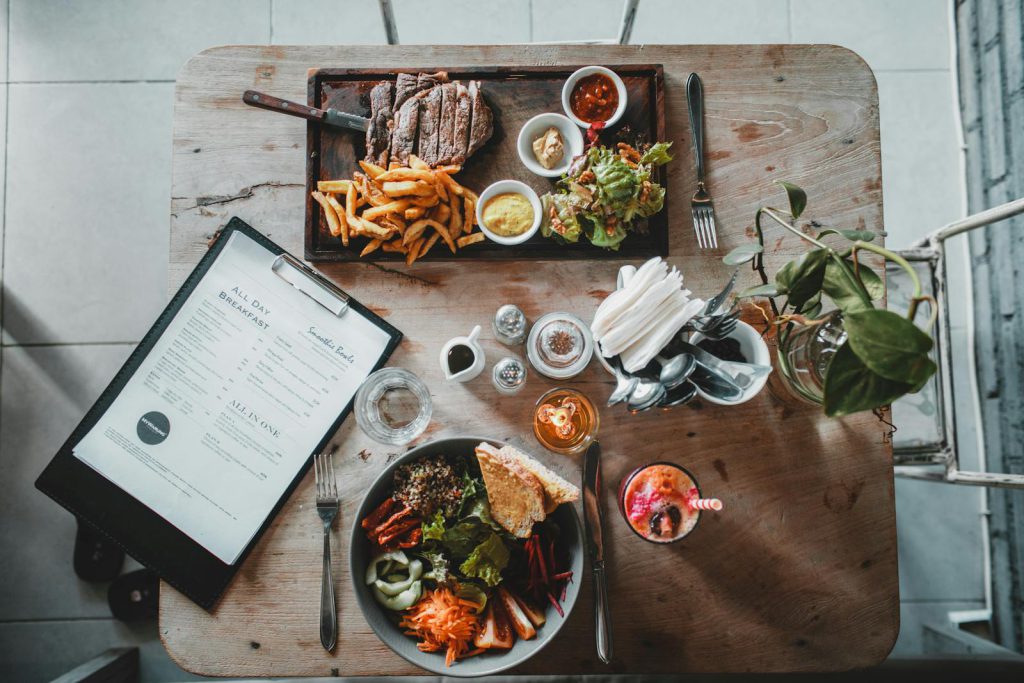
Customization and Control
Customization and control are essential aspects of party catering. While DIY catering offers complete control over every detail, professional caterers also provide extensive customization options to meet specific preferences and needs.
Customization and Control Comparison
| Factor | DIY Catering | Professional Catering |
|---|---|---|
| Menu Control | Full control; personal recipes | Customizable; wide variety of choices |
| Thematic and Aesthetic Choices | Personal touch; DIY decorations | Professional decor options |
| Flexibility | High; can adjust anytime | High; but within agreed parameters |
| Personal Involvement | High; requires active participation | Minimal; professionals handle most aspects |
Key Points
- Menu Control: DIY allows for complete control over the menu. Professionals offer extensive customization.
- Thematic Choices: DIY can reflect personal creativity. Professionals provide sophisticated decor and thematic options.
- Flexibility: DIY offers flexibility to make last-minute changes. Professional services offer structured flexibility.
- Involvement: DIY demands high personal involvement. Professional services reduce the host’s workload.
Stress and Enjoyment
Hosting a party should be enjoyable. DIY catering can add stress due to the workload involved, while professional catering services aim to enhance the host’s experience by handling all the stressful elements.
| Factor | DIY Catering | Professional Catering |
|---|---|---|
| Stress Levels | High; managing multiple tasks | Low; handled by professionals |
| Host’s Enjoyment | Reduced; busy with catering tasks | High; free to enjoy the event |
| Guest Satisfaction | Variable; depends on DIY success | Consistent; high professional standards |
| Problem Handling | Personal responsibility; stressful | Managed by experienced staff |
Key Points
- Stress Levels: DIY catering can be stressful, involving multiple responsibilities. Professionals aim to reduce stress.
- Host Enjoyment: DIY involvement can reduce enjoyment. Professionals allow hosts to enjoy their event.
- Guest Satisfaction: DIY success varies. Professional catering ensures high satisfaction.
- Problem Handling: Professionals handle unexpected issues efficiently, reducing stress for the host.
Comprehensive Comparison: DIY vs. Professional Party Catering
Choosing the right catering menu options for your event can be a challenging decision. Both DIY and professional catering have their unique advantages and disadvantages. This comprehensive section delves into various aspects of both options, providing a detailed comparison to help you determine which approach best suits your needs and preferences.
Cost Analysis
When it comes to cost, many assume that DIY catering is significantly cheaper than hiring professionals. However, this assumption often overlooks several hidden costs associated with DIY catering.
DIY Catering:
- Ingredients: Purchasing ingredients for a large group can be expensive, especially if high-quality items are required. Bulk buying may lead to waste if not managed properly.
- Equipment: Renting or purchasing equipment like chafing dishes, serving utensils, and tableware can add to the overall cost. Home kitchens may also lack the necessary appliances for large-scale cooking.
- Labor: DIY catering requires a significant time investment in preparation, cooking, serving, and cleaning. If hiring help, this adds to the cost.
- Hidden Costs: The stress and time spent on planning, shopping, cooking, and cleaning are intangible costs that can affect the overall experience.
Professional Catering:
- Package Inclusions: Most professional catering services offer comprehensive packages that include ingredients, equipment, staff, and cleanup. This can be more cost-effective when all factors are considered.
- Value for Money: Professional caterers provide high-quality food, elegant presentation, and efficient service, which may justify the higher upfront cost.
| Cost Factor | DIY Catering | Professional Catering |
|---|---|---|
| Ingredients | Variable; can be high | Included in package |
| Equipment Rental | Often necessary; additional cost | Included or optional |
| Staff (Servers, Chefs) | DIY or separately hired | Included in package |
| Transportation | Personal vehicle; additional cost | Included |
| Cleanup | Self-done or hired separately | Included |
| Hidden Costs | Time, stress, potential mistakes | Minimal; handled by professionals |
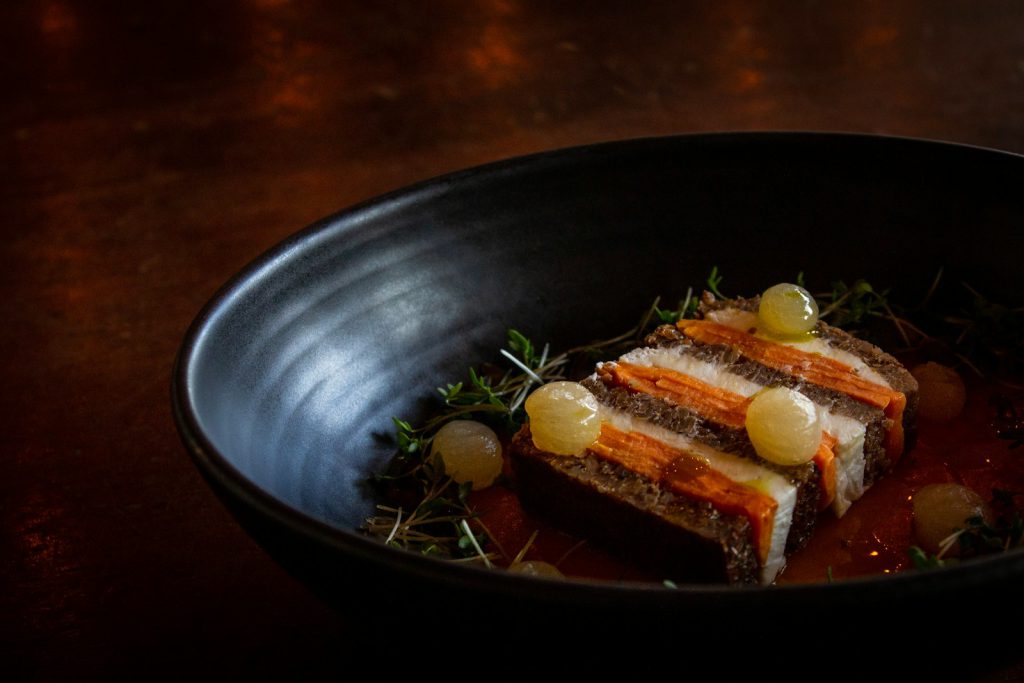
Quality and Presentation
The quality and presentation of the food play a crucial role in the overall success of an event. Professional caterers are equipped to deliver consistent quality and appealing presentation, while DIY efforts can vary based on the individual’s skills and resources.
DIY Catering:
- Quality: The quality of food can vary greatly depending on the cook’s expertise. Home-cooked meals might not always meet professional standards, especially for large groups.
- Presentation: DIY presentations can be charming and personalized but may lack the polish and finesse of professional setups.
- Variety: DIY menus are often limited to the cook’s repertoire. This can restrict the variety of dishes available to guests.
Professional Catering:
- Consistency: Professional caterers ensure consistent quality, taste, and presentation, enhancing the guest experience.
- Aesthetics: Professional presentation is typically elegant and sophisticated, making the food visually appealing.
- Customization: Caterers offer a wide range of menu options and can tailor dishes to suit dietary requirements and preferences.
| Quality Factor | DIY Catering | Professional Catering |
|---|---|---|
| Food Quality | Variable; depends on skills | Consistent; high standards |
| Presentation | Personal touch; less polished | Elegant and professional |
| Menu Variety | Limited by personal capability | Extensive; customizable |
| Special Dietary Needs | Requires careful planning | Easily accommodated |
| Food Safety and Hygiene | Variable; personal responsibility | High standards; trained staff |
Convenience
Time is a critical factor when planning and executing an event. DIY catering can be time-consuming and labor-intensive, whereas professional catering services offer convenience and efficiency.
DIY Catering:
- Planning: DIY catering requires meticulous planning, from menu selection to shopping and preparation.
- Preparation: Cooking for a large group involves substantial time and effort. Multiple trips to the store and extensive kitchen hours are common.
- Setup and Serving: Setting up and serving food can be challenging without additional help. Hosts often spend more time managing these tasks rather than enjoying the event.
- Cleanup: Post-event cleanup is another significant time investment.
Professional Catering:
- Efficiency: Caterers manage all aspects of the event, from planning and preparation to setup, serving, and cleanup.
- Stress-Free: Hosts can focus on entertaining guests rather than managing catering tasks. This leads to a more enjoyable and relaxed experience.
| Convenience Factor | DIY Catering | Professional Catering |
|---|---|---|
| Planning | Time-consuming; detailed | Efficient; handled by caterers |
| Shopping and Preparation | Extensive; multiple trips | Included in service |
| Cooking Time | Labor-intensive | Managed by caterers |
| Setup and Serving | Self-done or requires help | Fully managed |
| Cleanup | Time-consuming; personal responsibility | Included in service |
Level of Customisation
Control over the event’s details is essential for many hosts. DIY catering offers complete control over every aspect, while professional services also provide significant customization options.
DIY Catering:
- Complete Control: Hosts have full control over the menu, theme, and presentation. This allows for personal touches and creativity.
- Flexibility: Changes can be made up until the last minute, providing high flexibility.
Professional Catering:
- Customization: While caterers handle the logistics, they work closely with clients to ensure the menu and presentation align with their vision.
- Professional Advice: Caterers bring expertise and can offer valuable suggestions to enhance the event.
| Customization Factor | DIY Catering | Professional Catering |
|---|---|---|
| Menu Control | Full control; personal recipes | Customizable; wide variety |
| Thematic and Aesthetic Choices | Personal touch; DIY decorations | Professional decor options |
| Flexibility | High; can adjust anytime | High; within agreed parameters |
| Personal Involvement | High; requires active participation | Minimal; handled by professionals |
Keeping up with deadline
Hosting an event should be a joyful experience, but DIY catering can add considerable stress. Professional catering services aim to enhance the host’s enjoyment by alleviating the stress of catering tasks.
DIY Catering:
- High Stress Levels: Managing multiple tasks can be overwhelming, affecting the host’s ability to enjoy the event.
- Reduced Enjoyment: Constantly attending to catering tasks can detract from the host’s ability to engage with guests and enjoy the party.
Professional Catering:
- Low Stress Levels: Professionals handle all catering-related tasks, allowing the host to relax and enjoy the event.
- Enhanced Enjoyment: Hosts can focus on interacting with guests and enjoying the party, leading to a more memorable experience.
| Stress and Enjoyment Factor | DIY Catering | Professional Catering |
|---|---|---|
| Stress Levels | High; managing multiple tasks | Low; handled by professionals |
| Host’s Enjoyment | Reduced; busy with tasks | High; free to enjoy the event |
| Guest Satisfaction | Variable; depends on DIY success | Consistent; high professional standards |
| Problem Handling | Personal responsibility; stressful | Managed by experienced staff |
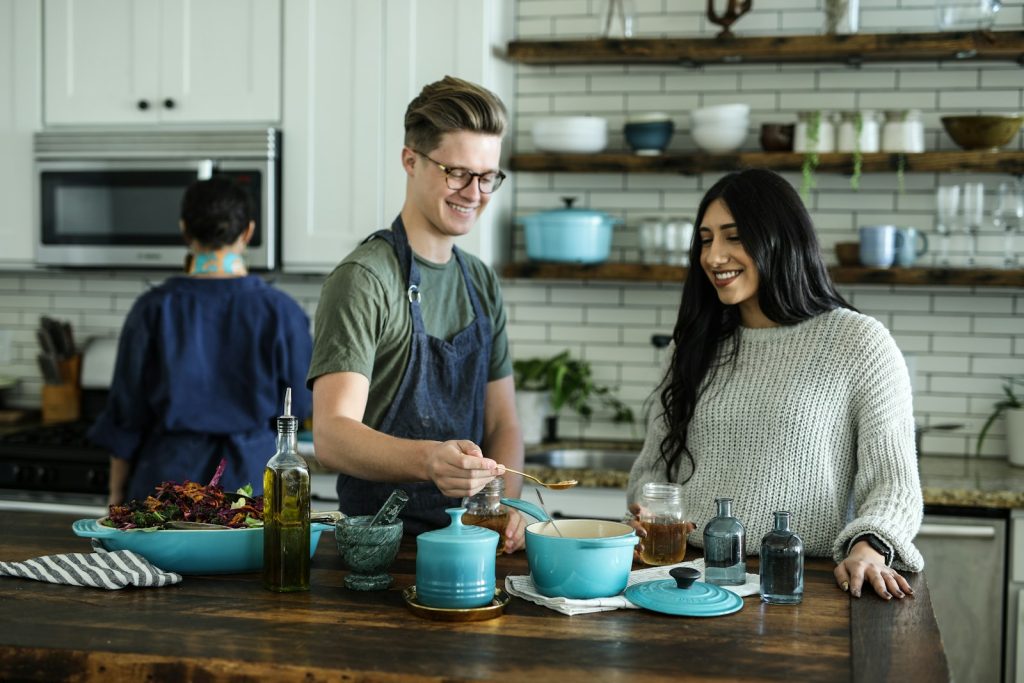
What is DIY Catering?
DIY catering involves planning, preparing, and serving the food for your event without hiring professional services. This means taking full responsibility for menu planning, grocery shopping, food preparation, cooking, serving, and cleanup. DIY catering can range from preparing a simple buffet to creating a gourmet meal, depending on your skills, resources, and the event’s requirements.
Situations Where DIY Catering is Appropriate
DIY catering is often suitable for smaller, more intimate gatherings where the personal touch is valued. Events such as family reunions, backyard barbecues, and small birthday parties can benefit from the personalized approach of DIY catering. It’s also an attractive option for those on a tight budget or for hosts who enjoy cooking and entertaining.
Here’s a comprehensive table comparing DIY party catering versus professional catering:
| Aspect | DIY Catering | Professional Catering |
|---|---|---|
| Cost | Generally lower, as you buy ingredients yourself | Higher, includes food, service, and expertise |
| Control Over Menu | Full control over menu selection and preparation | Limited control; menu options provided by caterer |
| Customization | Highly customizable; you can create personal dishes | Customizable to an extent; professional input available |
| Time Investment | High; requires planning, shopping, cooking, and serving | Low; minimal time required from the host |
| Stress Level | High; managing food preparation and event logistics | Low; professionals handle all aspects of catering |
| Quality of Food | Depends on personal cooking skills and resources | High; prepared by experienced chefs with professional equipment |
| Presentation | Varies based on individual skill | Professional and polished |
| Service | Self-service or enlist friends/family for help | Trained staff provided for serving and cleanup |
| Equipment Needed | Requires personal kitchen equipment and rentals | Provided by catering company |
| Food Safety | Requires personal knowledge of food safety standards | Caterers adhere to strict food safety regulations |
| Event Size Handling | Suitable for small to medium gatherings | Suitable for all event sizes, including large gatherings |
| Flexibility | High; adapt menu and preparation as needed | Moderate; depends on caterer’s flexibility and policies |
| Cleanup | Host’s responsibility | Managed by catering staff |
| Reliability | Depends on personal ability to handle unexpected issues | High; professional caterers have contingency plans |
| Special Dietary Needs | Requires personal attention to accommodate guests | Caterers can accommodate various dietary restrictions |
Benefits of DIY Catering
Cost Control and Budget Management
One of the most significant advantages of DIY catering is the potential for cost savings. By eliminating labor costs and markups associated with professional services, you can allocate more of your budget to ingredients, decorations, or other event aspects. Additionally, you have full control over the menu, allowing you to choose cost-effective dishes and avoid expensive catering packages.
Personal Touch
DIY catering allows for complete customization of the menu and presentation. You can tailor the food to your guests’ preferences and dietary restrictions, ensuring that everyone is satisfied. The personal touch of homemade dishes can also create a warm and inviting atmosphere, making your event feel more intimate and special.
Flexibility in Menu Planning
When you cater your event, you have the freedom to experiment with different recipes and cuisines. This flexibility can be particularly beneficial if you want to incorporate family recipes, seasonal ingredients, or unique culinary themes. Unlike professional caterers, who may have fixed menus, DIY catering allows for endless creativity and adaptability.
Challenges and Drawbacks of DIY Catering
Time and Effort Required
One of the most significant drawbacks of DIY catering is the immense time and effort involved. From planning the menu and shopping for ingredients to cooking, serving, and cleaning up, the entire process can be exhausting. This can be especially challenging for larger events, where the sheer volume of food and logistics can become overwhelming.
Need for Equipment and Rentals
DIY catering often requires access to specialized equipment and rentals, such as large pots, pans, serving dishes, and chafing dishes. If you don’t already own these items, you’ll need to rent or borrow them, adding to your overall costs and logistical challenges. Additionally, you’ll need adequate kitchen space and storage for food preparation and serving.
Stress and Potential for Mishaps
Catering an event on your own can be highly stressful, particularly if you’re inexperienced or if unexpected issues arise. There’s always the risk of running out of food, encountering cooking disasters, or dealing with last-minute changes. These potential mishaps can detract from your enjoyment of the event and leave you feeling frazzled and overwhelmed.
What is Professional Catering?
Professional catering involves hiring a catering company to handle all aspects of food preparation, service, and cleanup for your event. This includes menu planning, cooking, serving, and sometimes even providing additional services like bartending, decorations, and event coordination. Professional caterers bring expertise, resources, and staff to ensure a seamless and high-quality dining experience for your guests.
Situations Where Professional Catering is Ideal
Professional catering is ideal for larger events, formal occasions, and situations where you want to ensure a high level of service and presentation. Events such as weddings, corporate functions, and milestone celebrations benefit from the expertise and efficiency of professional caterers. If you have a large guest list, complex dietary needs, or limited time to dedicate to event planning, professional catering can be a lifesaver.
High-Quality Food and Presentation
One of the main advantages of hiring professional caterers is the guaranteed quality of food and presentation. Caterers have the skills, experience, and resources to prepare delicious, restaurant-quality meals that are beautifully presented. This level of professionalism can impress your guests and elevate the overall atmosphere of your event.
Convenience and Time-Saving
Professional catering saves you a significant amount of time and effort. Caterers handle everything from menu planning and ingredient sourcing to cooking, serving, and cleanup. This allows you to focus on other aspects of your event and enjoy the occasion without worrying about the details of food preparation.
Professional Service and Reliability
Hiring professional caterers ensures reliable and efficient service. Caterers are experienced in managing large events and can handle any issues that arise with ease. They also bring a team of trained staff to serve food, attend to guests, and manage logistics, ensuring that everything runs smoothly.
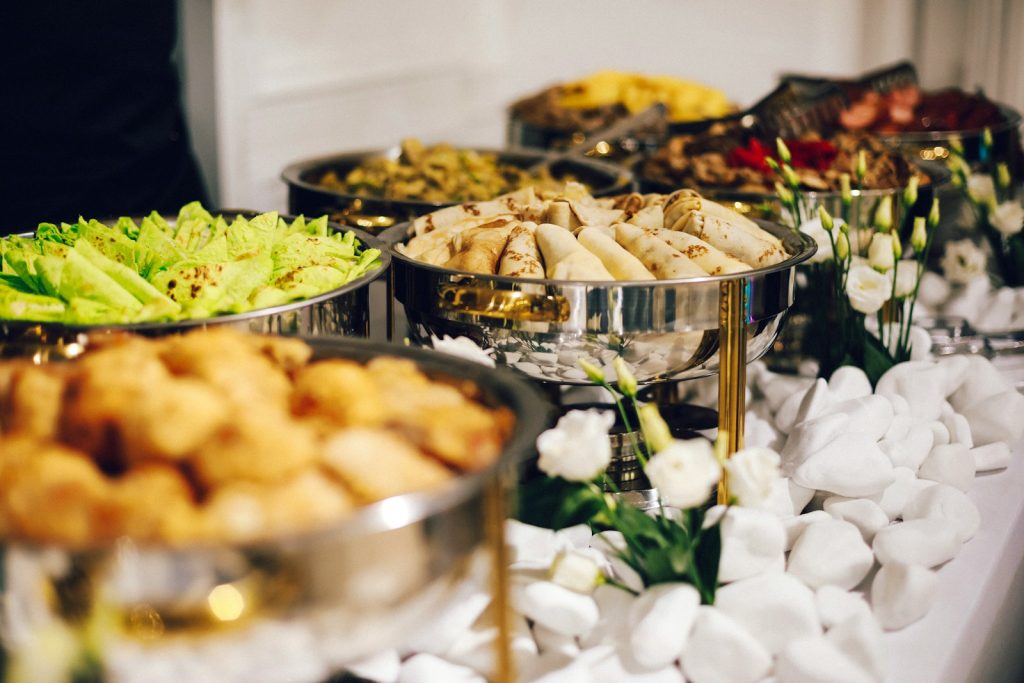
Drawbacks of Professional Catering
Higher Costs
The most significant drawback of professional catering is the higher cost. Professional services come with a price tag that includes labor, equipment, ingredients, and overhead expenses. This can be prohibitive for those with limited budgets or for events where cost control is a priority.
Less Control Over Menu Customization
When hiring professional caterers, you may have less control over the menu compared to DIY catering. While caterers offer a variety of options, there may be limitations on customization based on their capabilities and policies. This can be a drawback if you have specific preferences or unique dietary requirements.
Dependency on External Service Providers
Relying on external service providers means you’re dependent on their reliability and professionalism. Any issues with the catering company, such as delays, mistakes, or miscommunications, can impact your event. It’s essential to choose a reputable and trustworthy caterer to minimize these risks.
Comparing the Actual Cost between the Catering Types
Breakdown of DIY Catering Costs
When considering DIY catering, it’s essential to account for all potential expenses. These can include:
- Ingredients: The cost of food and beverages.
- Equipment: Purchases or rentals of cooking and serving equipment.
- Rentals: Tables, chairs, linens, and other event essentials.
- Decorations: Table settings, centerpieces, and other decor.
- Labor: If you hire help for cooking, serving, or cleaning.
Breakdown of Professional Catering Costs
Professional catering costs typically encompass:
- Menu Pricing: Cost per person or per dish.
- Service Fees: Charges for staff, including servers, chefs, and bartenders.
- Rentals: Equipment and furniture provided by the caterer.
- Additional Services: Extra charges for bartending, event coordination, or special requests.
- Gratuities: Tips for the catering staff.
Hidden Costs and Unexpected Expenses
Both DIY and professional catering can incur hidden costs and unexpected expenses. For DIY catering, these might include last-minute ingredient purchases, additional rentals, or emergency help. For professional catering, extra charges for overtime, special requests, or changes to the menu can add to the final bill.
Case Studies and Examples
Example 1: Small Backyard BBQ catering (DIY)
- Ingredients: $300
- Equipment Rentals: $100
- Decorations: $50
- Labor (friend/family help): $0
- Total Cost: $450
Example 2: Wedding Reception (Professional)
- Menu Pricing: $50 per person x 100 guests = $5000
- Service Fees: $1500
- Rentals: $500
- Additional Services: $300
- Gratuities: $500
- Total Cost: $7800
| Cost Comparison Table | DIY Catering | Professional Catering |
|---|---|---|
| Ingredients | $300 | Included |
| Equipment Rentals | $100 | Included |
| Decorations | $50 | Included |
| Labor | $0 | $1500 |
| Service Fees | $0 | $5000 |
| Additional Services | $0 | $300 |
| Gratuities | $0 | $500 |
| Total Cost | $450 | $7800 |
Health and Safety Considerations & Risks
| Risk | Description |
|---|---|
| Food Safety Issues | Without professional knowledge, there’s a higher risk of foodborne illnesses due to improper handling and storage. |
| Inconsistent Quality | DIY catering can result in varying food quality, impacting the overall experience for guests. |
| Time Management Problems | Preparing and serving food takes significant time, which can detract from enjoying the event. |
| Stress and Fatigue | Managing catering tasks can be overwhelming and exhausting, reducing the host’s ability to enjoy the event. |
| Lack of Professional Equipment | DIY caterers may not have access to professional-grade equipment, affecting food preparation and presentation. |
| Limited Menu Options | DIY caterers might lack the ability to offer diverse and specialized menu items that professionals can provide. |
| Inadequate Portion Control | Estimating food quantities can be challenging, leading to shortages or excessive leftovers. |
| Logistical Challenges | Coordinating food preparation, service, and cleanup can be complex and stressful without professional help. |
| Inability to Handle Large Events | Larger events require extensive planning and execution, which can be difficult to manage without experience. |
| Potential Legal Issues | DIY catering may not meet health regulations, potentially leading to legal issues if guests become ill. |
DIY Catering
Temperature Control: Keep hot foods hot and cold foods cold to prevent bacterial growth.
Hygiene: Ensure everyone handling food washes their hands thoroughly and frequently.
Allergen Awareness: Label all dishes clearly if they contain common allergens like nuts, dairy, or gluten.
Professional Catering
Professional caterers follow strict health and safety standards, including proper food handling, preparation, and storage techniques to ensure the highest quality and safety.
Environmental Impact and Sustainability
Local Ingredients: Source ingredients from local farms and markets to reduce your carbon footprint.
Waste Reduction: Plan portions carefully to minimize food waste. Donate leftovers when possible.
Eco-friendly Serveware: Use compostable plates and utensils or opt for reusable items to cut down on plastic waste.
Special Considerations
When catering an event, accommodating dietary restrictions and preferences is crucial. Both DIY and professional catering have different capabilities in this regard.
DIY Catering
Pros:
- Complete Control: DIY catering allows you to tailor the menu to accommodate all dietary restrictions and preferences, ensuring that all guests’ needs are met.
- Personal Attention: You can personally ensure that all ingredients are safe for guests with allergies or specific dietary needs.
Cons:
- Limited Expertise: Without professional knowledge, it can be challenging to create balanced and diverse menus that cater to various dietary requirements.
- Increased Workload: Customizing the menu adds to the already significant workload of DIY catering.
Professional Catering
Pros:
- Expertise: Professional caterers have experience and knowledge in accommodating dietary restrictions and preferences, ensuring safe and satisfying options for all guests.
- Diverse Options: They can offer a variety of menu choices, including vegetarian, vegan, gluten-free, and other special diets.
Cons:
- Less Flexibility: Some caterers may have limitations on the extent of customization they can offer, which might not fully meet your specific needs.
Event Size and Complexity
The size and complexity of your event significantly influence whether DIY or professional catering is more appropriate.
DIY Catering
Pros:
- Smaller Events: DIY catering can be manageable and rewarding for smaller, intimate gatherings where the personal touch is appreciated.
- Simple Menus: For events with simple menus, DIY catering can be a cost-effective and enjoyable option.
Cons:
- Large Events: Catering for large events can be overwhelming and impractical for DIY efforts due to the sheer volume of food and logistics involved.
- Complex Menus: Creating and executing complex menus can be challenging without professional skills and equipment.
Professional Catering
Pros:
- Large Events: Professional caterers have the resources and experience to handle large events efficiently, ensuring smooth operation and guest satisfaction.
- Complex Menus: They can execute complex menus with multiple courses, ensuring high quality and consistency.
Cons:
- Cost: The cost of professional catering can be prohibitive for large events, especially if the budget is tight.
Legal and Liability Issues
Legal and liability issues, particularly concerning alcohol service, are important considerations when choosing between DIY and professional catering.
DIY Catering
Pros:
- Control: You have full control over the alcohol served and can purchase it according to your preferences and budget.
Cons:
- Liability: You are responsible for ensuring that alcohol is served safely and responsibly. This includes monitoring guests’ consumption and preventing underage drinking.
- Licensing: Depending on local laws, you may need permits or licenses to serve alcohol, adding to the complexity and potential legal risks.
Professional Catering
Pros:
- Licensed Service: Professional caterers are typically licensed to serve alcohol and have trained staff to manage it responsibly.
- Liability Management: They assume responsibility for ensuring safe alcohol service, reducing your legal and liability risks.
Cons:
- Additional Costs: Alcohol service by professional caterers can add to the overall cost of catering.
Decision-Making Guide
Choosing between DIY and professional catering involves considering various factors to determine the best option for your event.
Checklist of Factors to Consider:
- Budget: Assess your budget and compare the costs of DIY and professional catering.
- Time: Consider the time you have available to dedicate to catering tasks.
- Event Size: Evaluate the size and complexity of your event and whether you can manage it on your own.
- Quality Expectations: Determine the importance of food quality and presentation for your event.
- Dietary Needs: Consider the dietary restrictions and preferences of your guests.
- Stress Tolerance: Assess your ability to handle the stress and potential issues of DIY catering.
Tips for Making an Informed Decision:
- Weigh Pros and Cons: Use comparison tables and lists to weigh the pros and cons of each option.
- Seek Advice: Consult with experienced event planners or friends who have catered events before.
- Trial Run: If possible, do a trial run of a smaller event to gauge your capability and comfort level with DIY catering.
Conclusion
In conclusion, the choice between DIY and professional catering depends on various factors, including budget, time, event size, and personal preferences. While DIY catering offers cost savings and a personal touch, it comes with significant time investment and potential stress. Professional catering provides convenience, high-quality food, and reliable service, albeit at a higher cost. By carefully evaluating your needs and priorities, you can make an informed decision that ensures a successful and enjoyable event.
Choosing between DIY and professional catering involves weighing various factors, including cost, quality, convenience, customization, and stress levels. DIY catering offers a personal touch and potential cost savings but requires significant time, effort, and skill. On the other hand, professional catering provides convenience, high-quality food, elegant presentation, and reduced stress, making it a worthy investment for many hosts. By considering the detailed comparisons provided, you can make an informed decision that best suits your event’s needs and ensures a memorable experience for both you and your guests.
